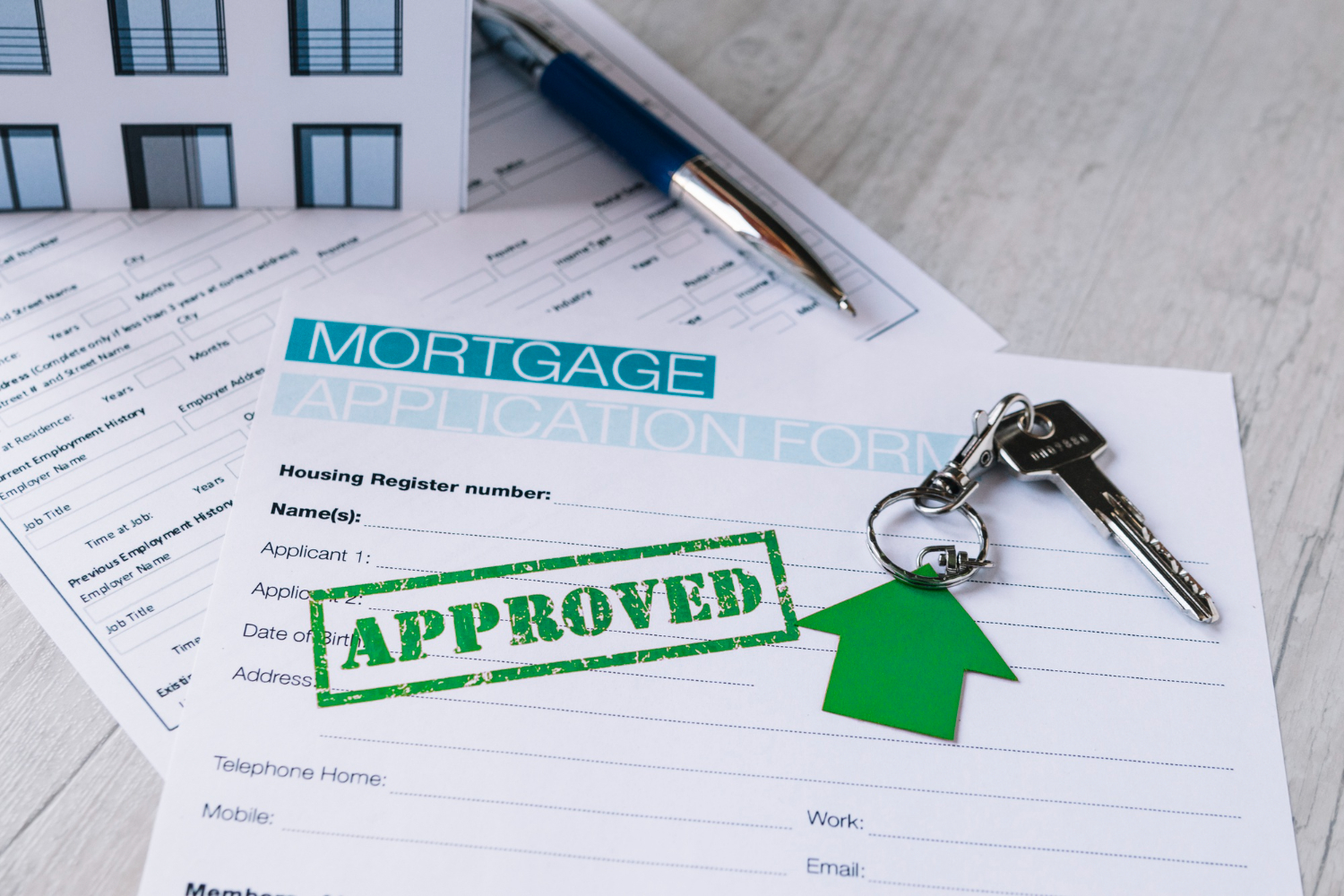10 Essential Tips for First-time Homebuyers
Dhruv Prajapati 17 August 2023
Welcome to the exciting world of homeownership! As a first-time homebuyer, you are about to embark on a thrilling journey filled with endless possibilities and new beginnings. But let's face it, navigating the real estate market can be intimidating, especially if you're not familiar with the process. That's why we've gathered 10 essential tips to help guide you through this exhilarating adventure.
From saving for a down payment to closing on your dream home, we'll cover everything you need to know in order to make informed decisions and ensure a smooth transition into homeownership. So grab a cup of coffee (or tea), get cozy, and let's dive into these valuable tips for first-time homebuyers.
Saving for a Down Payment

One of the first steps in buying a home is saving for a down payment. This initial lump sum can seem daunting, but with careful planning and discipline, it's definitely achievable. Start by setting a savings goal. Determine how much you'll need for your down payment and create a timeline to reach that target. Consider factors such as your current income, expenses, and any potential financial assistance you may receive from family or government programs.Next, evaluate your spending habits. Look for areas where you can cut back and save more money each month. It could be as simple as packing lunch instead of eating out or canceling unnecessary subscription services.
Another great strategy is automating your savings. Set up automatic transfers from your checking account to a separate savings account dedicated solely to the down payment fund. This way, the money will be put aside before you even have the chance to spend it.Consider exploring different types of accounts that offer higher interest rates than traditional savings accounts. For example, some banks offer specialized "homebuyer" or "first-time buyer" accounts that provide incentives like bonus interest rates or matching contributions.
Explore alternative sources of funding such as grants or down payment assistance programs available in your area. These resources can help supplement your savings efforts and make homeownership more accessible.Remember, saving for a down payment takes time and patience – don't get discouraged if it feels like progress is slow at times. Stay focused on your goal and celebrate each milestone along the way!
Getting Pre-Approved for a Mortgage

One of the most important steps in the homebuying process is getting pre-approved for a mortgage. This step allows you to determine how much house you can afford and shows sellers that you are a serious buyer.To get pre-approved, start by gathering all your financial documents, such as pay stubs, tax returns, and bank statements. This will help lenders assess your financial situation and determine how much they are willing to lend you.Next, shop around for different lenders to find the best mortgage rates and terms. It's important to compare offers from multiple lenders to ensure you're getting the best deal possible.
Once you've chosen a lender, submit your application along with all necessary documentation. The lender will then review your information and perform a credit check.If approved, the lender will provide you with a pre-approval letter stating how much they are willing to lend you. This letter is crucial when making an offer on a home as it shows sellers that you have already secured financing.Remember that being pre-approved does not guarantee final approval of your loan. You'll still need to complete additional steps before closing on the home.Getting pre-approved for a mortgage is an essential step in the homebuying process. It helps set realistic expectations about what kind of properties you can afford and gives sellers confidence in your ability to secure financing. By following these tips and working with trusted lenders, first-time homebuyers can navigate this process smoothly and confidently move forward towards homeownership!
Working with a Buyer's Agent

When it comes to buying your first home, working with a buyer's agent can make the process much smoother and less overwhelming. A buyer's agent is a licensed real estate professional who represents you, the buyer, throughout the home-buying journey. They have extensive knowledge of the local market and can provide valuable insights and guidance.One of the main benefits of working with a buyer's agent is their ability to help you find properties that meet your specific criteria. Whether you're looking for a certain number of bedrooms, a particular location, or specific amenities, they will search for homes that align with your needs and preferences.
Once you've found potential properties, your agent will schedule viewings and accompany you to each showing. They'll point out both positive aspects and potential red flags that may not be immediately apparent to an inexperienced eye. This expertise can save you time and prevent costly mistakes down the road.Negotiating offers is another area where a buyer's agent shines. They'll work on your behalf to negotiate terms with sellers in order to secure the best possible deal for you. Their experience in navigating negotiations can be invaluable when it comes to getting through this sometimes tricky phase of the home-buying process.
Additionally, a buyer's agent can assist in coordinating other professionals involved in buying a home such as inspectors or attorneys. These connections are often built over years of working in the industry and allow them access to trusted individuals who can ensure every aspect of purchasing your new home goes smoothly.Partnering with a knowledgeable buyer's agent provides numerous advantages when buying your first home. From helping narrow down options based on your criteria to negotiating offers on your behalf, their expertise streamlines the process while providing peace of mind along the way.

So, you've found the perfect home and now it's time to make an offer. This can be both exciting and nerve-wracking, but with some careful planning and consideration, you'll be well-prepared to navigate this important step in the homebuying process.It's essential to have a clear understanding of your budget and what you're willing to spend on the property. Take into account factors such as your down payment amount, closing costs, and any additional expenses that may arise during the buying process.
Next, work closely with your buyer's agent to determine a competitive yet reasonable offer price. They will have valuable insights into market conditions and comparable sales in the area. Remember that negotiations are common in real estate transactions, so don't be afraid to start with a slightly lower offer than your maximum budget allows.Once you've settled on an offer price, consider including contingencies for inspections or financing. These clauses protect you as the buyer by allowing for further assessments of the property or providing an exit strategy if necessary.
Put everything in writing! A formal written offer demonstrates professionalism and ensures that all parties involved have a clear understanding of terms and conditions. Your agent will guide you through this process and help draft a compelling offer letter.Remember that making an offer is just one step towards homeownership. Stay patient throughout negotiations and trust in your team's expertise to guide you towards success.
Applying for a Home Loan

Securing a home loan is an important step in the homebuying process. Before you start applying, it's crucial to have your financial ducks in a row. This means gathering all necessary documents such as bank statements, tax returns, and pay stubs.Once you have everything in order, it's time to research different lenders and compare their rates and terms. This will help you find the best mortgage option that suits your needs.
When filling out the loan application, be prepared to provide detailed information about your income, assets, debts, and credit history. Honesty is key here - any discrepancies could delay or even derail your loan approval process.After submitting your application, the lender will review it along with supporting documentation. They may also request additional information or clarification during this stage.
The next step is the underwriting process where the lender assesses your creditworthiness and evaluates if they should approve or deny your loan request. They will consider factors like debt-to-income ratio, employment history, credit score, and more.If approved for a home loan, congratulations! You're one step closer to homeownership. The lender will provide you with specific details regarding interest rate options and closing costs associated with the loan.
Remember that each applicant's experience can vary depending on their unique financial situation and chosen lender. It's essential to stay informed throughout this process so that there are no surprises along the way!
Closing on the Home

Once you have found your dream home and negotiated a purchase price, it's time to move forward with closing on the home. This is an exciting time, but it can also be overwhelming if you're not prepared. Here are some key steps to keep in mind during this process.First, review all of the closing documents carefully. This includes the sales contract, loan documents, and any additional paperwork required by your lender or attorney. It's important to understand what you're signing and ask questions if anything is unclear.
Next, schedule a final walkthrough of the property before closing day. This is your opportunity to ensure that everything is in order and any repairs or agreed-upon changes have been completed satisfactorily.On closing day itself, be prepared for a lot of paperwork! You'll need to bring identification, proof of insurance, and any necessary funds for closing costs or down payment. Your real estate agent or attorney will guide you through each step of the process.
During the actual closing meeting with all parties involved (such as sellers, agents, lenders), take your time reading over each document before signing them. Remember that once you sign these papers, they become legally binding agreements.After all necessary signatures are obtained and funds are transferred as specified in the agreement - congratulations! The home officially belongs to you!
Keep in mind that timelines can vary depending on factors like local laws and loan type. Stay organized throughout this process by keeping copies of all documents related to closing on hand for future reference.Now that we've covered some essential tips for first-time homebuyers when it comes to closing on a home purchase let's move onto our next section – Moving into the Home.
Moving into the Home
Moving into a new home is an exciting and often overwhelming experience for first-time homebuyers. After all the searching, paperwork, and negotiations, it's finally time to settle into your new space. Here are some essential tips to help make the moving process as smooth as possible.First off, start planning early. Create a detailed checklist of tasks that need to be completed before, during, and after the move. This will help you stay organized and ensure nothing gets overlooked.
Next, hire professional movers or enlist the help of friends and family if you're on a budget. Make sure to pack your belongings securely and label boxes with their contents so unpacking is easier later on.Before moving day arrives, make sure to update your address with important institutions like banks, insurance companies, and government agencies. Also don't forget about transferring utilities such as electricity, water, gas, internet services etc., so they are ready when you arrive at your new home.
Once everything is packed up and ready to go, take some time to clean both your old place and your new one before moving in. It's much easier to deep clean without furniture in the way! Lastly but importantly enjoy this exciting time! Moving can be stressful but it also marks the beginning of a new chapter in your life. Take some time to explore your neighborhood once you're settled in - find local shops restaurants parks etc., that will become part of your daily routine.
Remember that every move is different; what works for one person may not work for another! The most important thing is staying organized throughout the process – having clear goals priorities & timelines helps keep things stress-free during what can otherwise seem overwhelming moments.
Maintaining the Home

Once you've moved into your new home, it's important to prioritize maintenance in order to protect your investment and ensure its longevity. Regular upkeep can prevent costly repairs down the line. Here are some essential tips for maintaining your home:
1. Create a cleaning schedule: Keeping a clean and organized home not only improves aesthetics but also prevents dirt, dust, and grime from causing damage or allergies.
2. Check for leaks: Inspect faucets, pipes, and toilets regularly to identify any leaks that could lead to water damage or higher utility bills.
3. Test smoke detectors and carbon monoxide alarms: Safety should always be a top priority. Test these devices monthly and replace batteries as needed.
4. Maintain heating and cooling systems: Change filters regularly to improve air quality and efficiency while extending the lifespan of your HVAC system.
5. Clear gutters and downspouts: Prevent clogs by removing debris that could cause water backup, leading to potential roof or foundation damage.
6. Trim trees and shrubs: Keep vegetation away from windows, roofs, siding, and electrical wires to minimize the risk of property damage during storms.
7. Schedule regular pest control treatments: Prevent infestations by having professional pest control services inspect your home periodically.
8. Conduct routine inspections: Keep an eye out for signs of wear or damage in areas such as roofing, flooring, walls, windows/doors seals etc., addressing issues promptly before they escalate into major repairs.
9 . Maintain proper ventilation: Ensure good airflow throughout your home by opening windows when weather permits; this helps prevent moisture buildup which can lead to mold growth.
10 . Stay on top of general maintenance tasks like painting touch-ups , sealing cracks , checking insulation etc.; these small efforts will extend the life of various components within your house .
By following these tips for maintaining your new home , you'll keep it in optimal condition while enjoying peace of mind knowing that you're taking care of your investment. Remember, a little effort goes
Conclusion

Purchasing your first home is an exciting and rewarding milestone in life. It may seem overwhelming at times, but with these essential tips for first-time homebuyers, you'll be well-prepared to navigate the process smoothly.Remember, saving for a down payment is crucial to get started on your homeownership journey. Getting pre-approved for a mortgage will give you a clear idea of your budget and save time during house hunting. Working with a buyer's agent can provide invaluable guidance and expertise throughout the process.When making an offer on a home, carefully consider all factors involved and don't be afraid to negotiate. Once your offer is accepted, conducting thorough inspections of the property will ensure there are no hidden surprises.
Applying for a home loan requires gathering necessary documentation and having patience throughout the approval process. Closing on your new home will involve signing legal documents and transferring funds – it's important to review everything carefully before finalizing.Moving into your new home is both exciting and exhausting! Make sure to plan ahead, hire professional movers if needed, and take time to settle in gradually. Once you've moved in, maintaining your new abode is key – regular upkeep will help protect its value over time.
As you embark on this thrilling adventure of becoming a homeowner for the first time, remember that it's normal to feel some uncertainty along the way. By following these essential tips and seeking advice when needed from trusted professionals or experienced individuals in real estate matters., you'll be well-equipped to handle any challenges that come your way! With careful planning, research,and support from experts,your dream of owning a place called "home" can soon becomea reality!
Get in Touch With us
Register here and Avail the Best Offers!!





